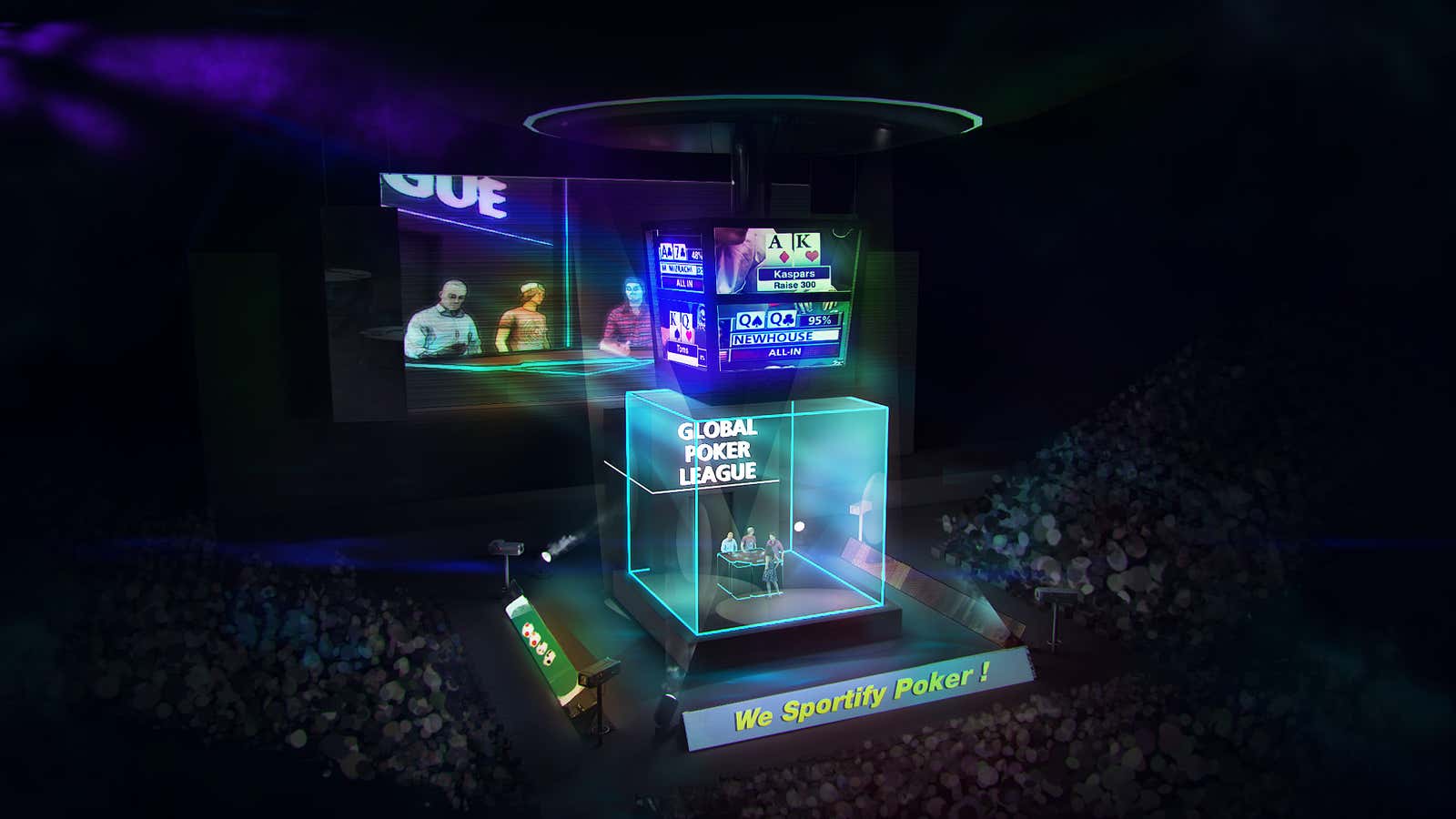Just as football has the NFL, soccer has the MLS, and golf has the PGA, poker could soon have a professional league of its own.
Alexandre Dreyfus, the poker-industry impresario behind the Global Poker Index player ranking, plans to start a poker league, with a 14-week season and 12 teams competing live in a stadium-like setting.
Dreyfus says he has raised nearly $5 million from private investors to help develop the Global Poker League through his company, Mediarex Sports & Entertainment (MSE).
Each of the 12 GPL teams would have an owner and represent a different city: New York City, Los Angeles, San Francisco, Las Vegas, Toronto, and Sao Paolo for the Americas conference, and London, Paris, Prague, Barcelona, Moscow, and Hong Kong for the Eurasia conference. While details about the team-ownership arrangements remain fuzzy, Dreyfus says the first season is slated to start in February.
Dreyfus, whose Global Poker Index claims to holds data on more than 450,000 players across 97 countries, says the GPL’s players would be like salaried baseball players, drafted for their talent and strategy. The players would not bet with money, though a bonus for winning a match may incentivize them.
By shifting focus from the money won and lost to the players’ energy and tactics, Dreyfus hopes that watching poker will become more exciting for audiences, whether attending the live events, streaming them online, or viewing on television. The league would revise the rules of the game to add 30- to 45-second time constraints, a requirement that all players stand, and random shuffling with digital cards instead of a dealer.
Along with its plans for digital cards, MSE plans to digitize the tournament. Audience members in the arena would see the cards on large TV screens, and the players would be standing in a large glass cube modeled after glass squash courts.
“The Cube” would be soundproofed and would only allow a view in. Audiences at the live events would see all the cards, hear the players’ dialogue, and learn in real-time the statistics about certain hands or information about a player, while the players remain isolated from what happens outside “The Cube.” Sportscasters in a studio above would offer commentary and analysis.
“We want to disrupt the image of the game,” Dreyfus says, “and in order to do that, we must change the game.”
The question is whether those changes would be enough to make the game legal outside of a casino setting.
Since his “sportified” version of poker would have a seasonal and a statistical component, Dreyfus—who describes poker as “an old game but a young industry”—claims it would earn classification as a sport.
But David Klein, a lawyer who specializes in Internet poker and fantasy sports law at Klein Moynihan Turco in New York, says this would be “an aggressive interpretation” of the law. “At the end of the day, it is still poker,” he says.
